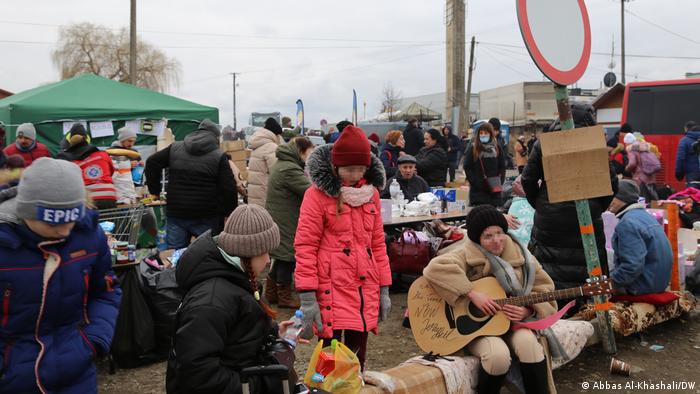
The number of refugees who have crossed the border from Ukraine into neighboring countries has surpassed 1.5 million, the UN's High Commissioner for Refugees Filippo Grandi said on Twitter.
The number of refugees has risen rapidly in the first 10 days of the conflict. Grandi said it is "the fastest-growing refugee crisis in Europe since World War II."
People fleeing the invasion have crossed into various countries, with the majority entering EU member state Poland. Warsaw says that almost 800,000 people have arrived since the beginning of the conflict.
Moldova, which shares a large border with Ukraine but is not an EU member state, said that 250,000 people, including 30,000 children, had crossed into the country and that it needed urgent international assistance to support them.
Greece also said on Sunday that some 3,700 people had arrived in the country from Ukraine. Around 100,000 ethnic Greeks live in Ukraine and Athens has pledged extra support to evacuate them. Many Ukrainians also moved to Greece after the fall of the Soviet Union and many of the new arrivals were reportedly staying with relatives, dpa new agency reported
Ukraine conflict could 'last months, if not years': UK deputy PM
Britain's Deputy Prime Minister Dominic Raab said on Sunday that opponents of Moscow's invasion of Ukraine will have to show "strategic stamina" if they want Russian President Vladimir Putin to fail.
"Our mission with our allies is to ensure Putin fails in Ukraine, and it's going to take some time — we're talking about months, if not years,” he told UK broadcaster Sky News.
When asked about Putin's seeming veiled threat of possibly using nuclear weapons, Raab said, "(Putin's) got a track record as long as anyone's arm of misinformation and propaganda ... this is a distraction from what the real issues are at hand — which is that it's an illegal invasion and it is not going according to plan."
Just under a week ago, Putin ordered his military to put Russia’s nuclear deterrence forces on high alert. It remains unclear exactly what this means on the ground and is seen by many as the response of a leader frustrated at the progress of his military plans amid strong Ukrainian resistance.